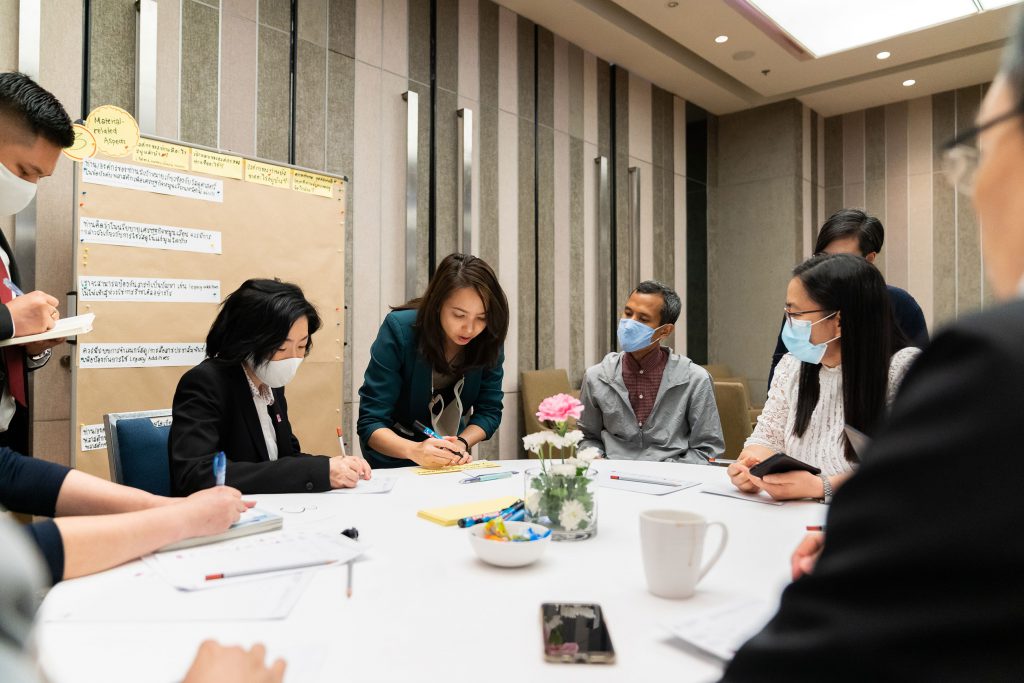GIZ teams up with public and private partners to reduce Single Use Plastic in Thailand, Malaysia and Indonesia

On 7 December 2020, public and private partners joined the kickoff workshop of the Collaborative Action for Single-Use Plastic prevention in Southeast Asia (CAP-SEA) project. The goal was to create a common understanding of the projects’ content, create the mindset to focus on prevention and prepare for reuse and to draft desired outcomes and work packages, as well as working arrangements.
Currently, Thailand is adopting the circular economy model in its national agenda as an instrument to achieve a more sustainable economy. Dr. Narong Sirilertworakul of the National Science and Technology Development Agency (NSTDA) explained that “The Bio-Circular-Green (BCG) economy model is an integration of three economic concepts: bioeconomy, circular economy and green economy. The aim is to create a balance between economic goals and sustainability in natural resources and science, technology and innovation to enhance competitiveness, particularly in 4 main areas, namely food and agriculture, health and wellness, energy and materials, and tourism and creative economy.”
Dr. Wijarn Simachayam, president of the Thailand Environment Institute (TEI) stated that with the circular economy (CE) model, Thailand aims to see improvements in natural resource consumption, greenhouse gas emissions and economic growth. “The TEI also has a goal to recycle 100% of plastics. We will focus on waste management infrastructure, education, innovation, technology and policy. One of the main focuses of the circular economy is product design that supports recyclability. CE product standards and criteria development therefore made up the bulk of the topics discussed.”
In line with Thailand’s BCG economy model and the Road Map on Plastic Waste Management, CAP-SEA project supports NSTDA to develop a policy framework for Plastic CE and an eco-design policy framework. To practice eco-design, CAP-SEA will support CE product design development for one or more product groups, likely including Fast Moving Consumer Goods (FMCG) packaging, such as beverage containers. This will start with the function of the product and thus circular systems, such as refillable bottles, are included. Besides material reduction through system or material change, the aim is to support boosting the plastic recycling market by developing design-for-recycling standards. “Eco-design is the basic legal framework for a green and circular economy. Our experts from Germany will introduce a comprehensive framework starting from design-for-prevention” said Mr. Kai Hofmann, Project Director of CAP-SEA Project.
Representatives from more than 10 public and private agencies participated in the kickoff workshop and held exchanges with the experts in sustainable products and material flows from Öko-Institut. The outputs after brainstorming and discussion on 3 topics focusing on CE policy framework, CE product criteria and material related aspects will be further developed by GIZ, TEI and Öko-Institut to create a Single-Use Plastics (SUP) prevention action plan that fits well with the Thai context.
The CAP-SEA project will continue supporting Single-Use Plastics (SUP) prevention in Indonesia, Malaysia and Thailand until March 2023 with the financial support of the German Federal Ministry for the Environment, Nature Conservation and Nuclear Safety (BMU).
GALLERY
Stefanie Mayr
Email:stefanie.mayr(at)giz.de
Chalisa Phetdong
Email:chalisa.phetdong(at)hotmail.com




















